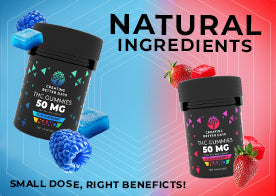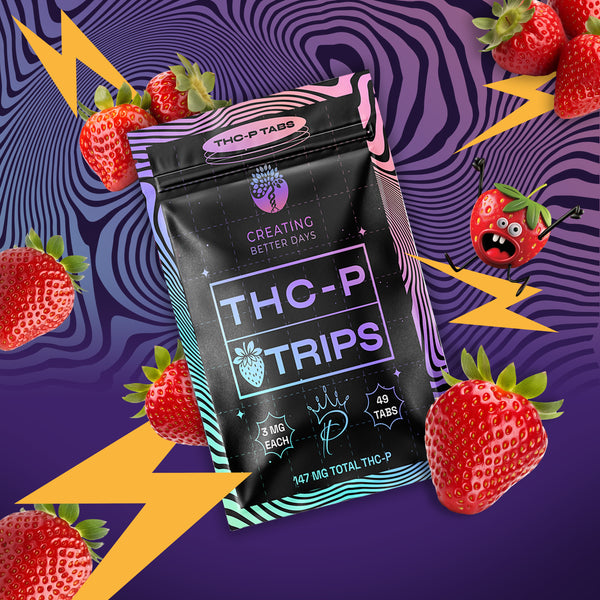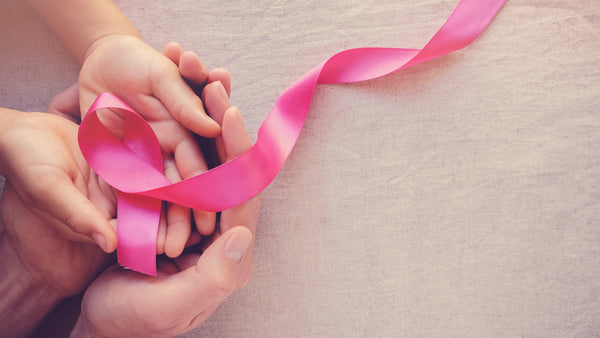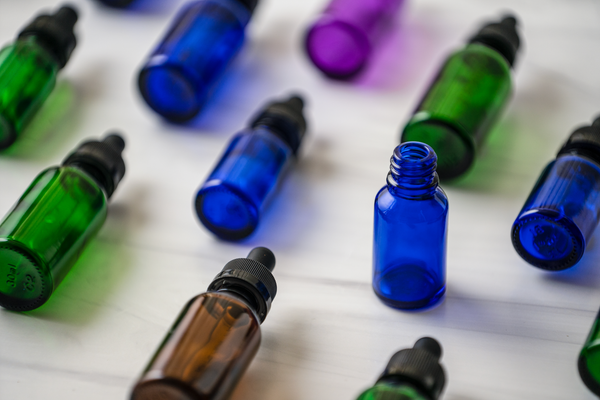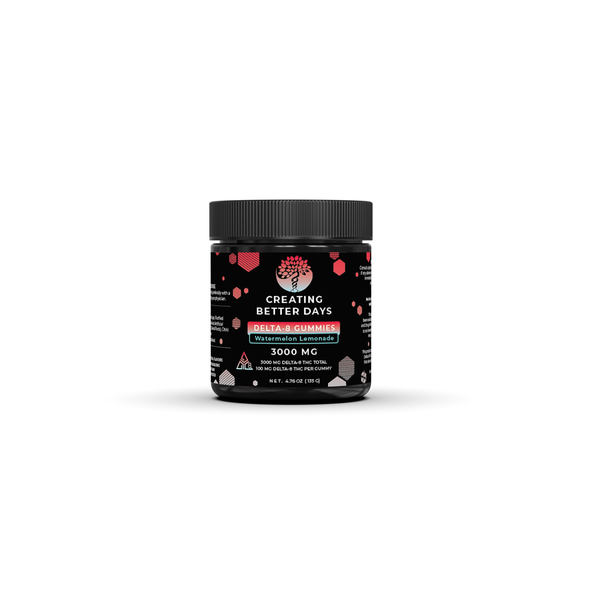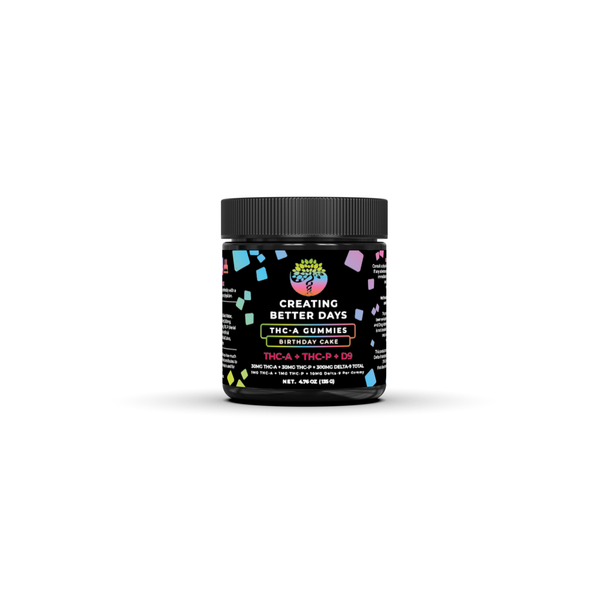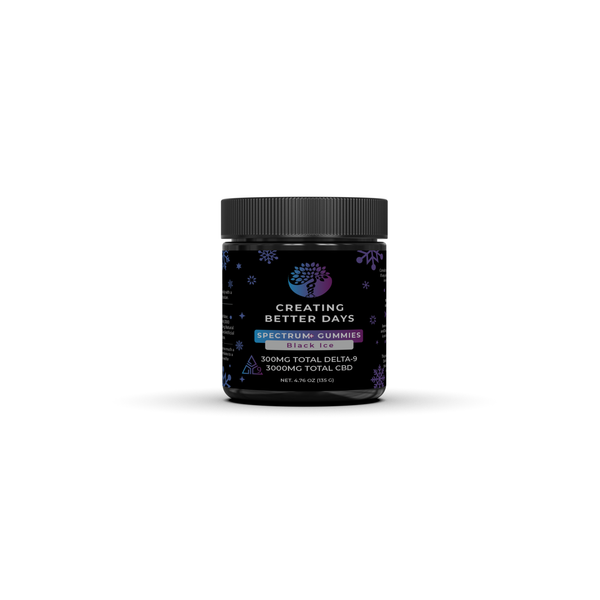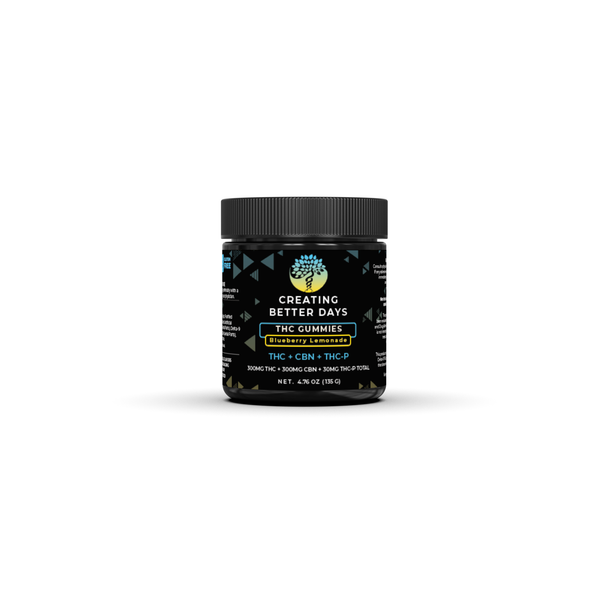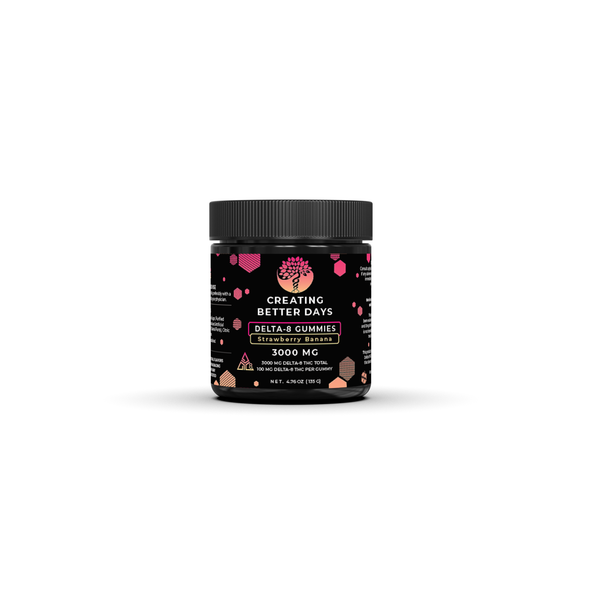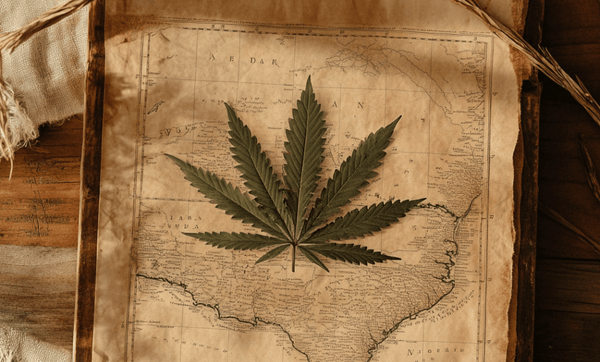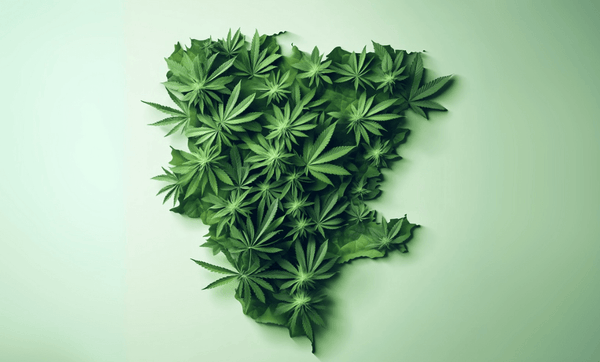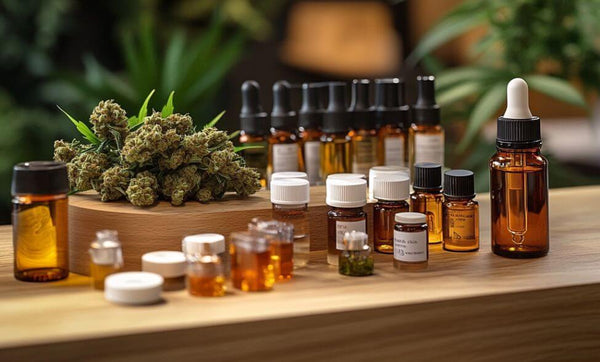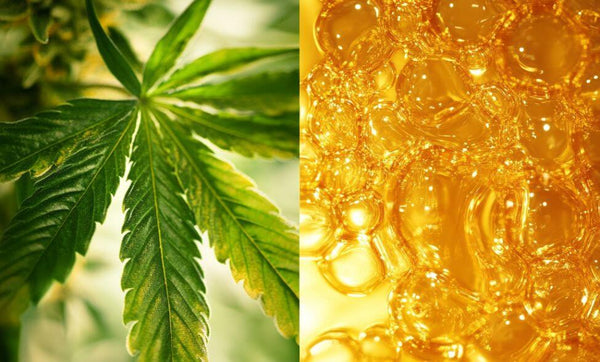
THCA vs THC: Understanding the Key Differences
The world of cannabis is filled with numerous compounds that each have their own unique potential effects. If you're new to the scene, you may be wondering about the difference between two of the most talked-about cannabinoids: THCA and THC. What is THCA vs THC, and how are they different? While they might sound similar, the truth is that these compounds play very different roles in how cannabis affects the body. In this article, we'll dive deep into THCA and THC, explore their chemical structures, effects, and legal status, and even guide you through how you might use them.
Whether you're a cannabis enthusiast or just starting to explore these compounds, you'll get a comprehensive, easy-to-understand breakdown. So, let’s jump right in!
Key Takeaways
-
THCA (tetrahydrocannabinolic acid) is the precursor to THC, and it's non-psychoactive until it undergoes decarboxylation.
-
Among the compounds responsible for cannabis' "high" sensation is THC (tetrahydrocannabinol).
-
By heating THCA, THC is decarboxylated into THCA.
-
Depending on where you live, THC and THCA can have different legal statuses, with THC usually being more regulated.
-
THC and THCA can both be used through inhalation, edibles, and topicals.
What is THCA?
Raw cannabis contains THCA, an acidic form of THC. If you've ever seen fresh cannabis buds, you’ve probably noticed that they don't have the same psychoactive effects as a joint you smoke or an edible you eat. THCA is not psychoactive in its natural state. In order to become psychoactive, it must undergo a process called decarboxylation. So, what exactly is THCA?
THCA is naturally present in cannabis plants before they are heated or processed. It is considered to be a cannabinoid acid, and it’s the main form of THC present in raw cannabis. THCA, not THC, is what you use when you use cannabis raw. But don't worry, this doesn’t mean you're missing out on all the benefits of cannabis; THCA still has its own potential benefits, although it does not cause the familiar "high" associated with THC.
What is THC?
Cannabis contains THC, a psychoactive compound that causes a high. THC, or tetrahydrocannabinol, is one of the most well-known and studied cannabinoids. THC gets so much attention because it interacts with the body’s endocannabinoid system (ECS) to produce a range of effects, from relaxation support to heightened senses, and for some, it can even cause feelings of being lifted.
In contrast to THCA, THC can cause psychoactive effects. THCA undergoes decarboxylation when it is heated, such as when you smoke or cook with cannabis.
THC has been the star of the show in most cannabis-related research and is commonly used in medical cannabis products due to its potential to help with a variety of conditions. However, not all effects are the same for everyone, and results can vary greatly.
Cannabinoid Basics: THC and THCA
Cannabinoids are naturally occurring compounds found in cannabis plants. The number of cannabinoids discovered so far exceeds 100, in addition to THCA and THC. The endocannabinoid system (ECS) regulates mood, appetite, sleep, and other functions in the body through these compounds.
While both THC and THCA are part of the same family of cannabinoids, they have very different properties. When the right conditions are present, THCA can convert into THC, the compound responsible for cannabis' characteristic high.
Origin in the Cannabis Plant
Both THCA and THC are derived from the same source: the cannabis plant. However, they are in different forms when they appear naturally in cannabis. THCA is present in raw cannabis, as we’ve mentioned, while THC is typically found in cannabis that has been heated or processed in some way. This is why fresh cannabis doesn’t make you high—it’s mostly THCA. Once you heat it, the THCA breaks down into THC.
Cannabis is grown all over the world, with different strains containing varying levels of both THCA and THC. The differences between cannabinoids and how each compound affects you are essential for those who want to experiment with them.
The Role of Cannabinoids
Cannabinoids, including THCA and THC, play a crucial role in how cannabis interacts with the body. Compounds like these interact with the ECS, which has receptors throughout the body, particularly in the brain and nervous system. The ECS helps maintain homeostasis (balance) in the body, and cannabinoids like THCA and THC influence this system in different ways.
Although THC is known for producing psychoactive effects, THCA is often used for its therapeutic effects without causing a high. Many users who want the benefits of cannabis without the altered state opt for THCA-rich products, such as tinctures or raw cannabis.
Chemical Structure and Properties
THCA and THC differ primarily in their chemical structure. While both share the same basic chemical framework, THCA contains a carboxyl group (-COOH), which makes it an acid. It is this carboxyl group that makes THCA non-psychoactive. When cannabis is heated (or decarboxylated), the carboxyl group is removed, transforming THCA into the psychoactive THC.
Structural Differences
The molecular structure of THCA and THC is nearly identical. The key difference is the presence of the carboxyl group in THCA. This small but significant difference is what gives THCA its non-psychoactive properties. When the carboxyl group is removed, the compound is no longer acidic and becomes THC, the compound responsible for the mind-altering effects.
Impact on Effects
Due to the structural differences between THCA and THC, the effects of the two compounds are vastly different. As THCA is non-psychoactive, it won't get you "high." It is said to have some potential benefits that are more therapeutic in nature, like promoting anti-inflammatory and antioxidant properties (though more research is needed in this area).
While THC is known to produce a variety of psychoactive effects, CBD does not. When THC binds to the receptors in the ECS, it can lead to a sense of ”high,” munchies, and other well-known effects.
Decarboxylation: Transforming THCA into THC
One of the most important processes in understanding the difference between THCA and THC is decarboxylation. THCA is heated and converted into THC in this process. Essentially, decarboxylation involves the removal of a carbon dioxide (CO2) molecule from the THCA, which turns it into the active form of THC.
What is Decarboxylation?
Cannabis undergoes a chemical reaction called decarboxylation when heated. As a result of this reaction, THCA becomes THC. Decarboxylation occurs when heat is applied to cannabis, whether you smoke, vape, or cook with it. As a result, raw cannabis does not cause a high, but heating it (such as in smoking or edibles) does.
Factors Affecting Decarboxylation
The efficiency of decarboxylation depends on several factors:
Heat: Cannabis must be heated to a certain temperature (typically around 220°F or 104°C) to effectively decarboxylate THCA into THC.
Time: The longer the cannabis is exposed to heat, the more complete the decarboxylation process.
Method: Different methods of heating (smoking, vaping, baking) may vary in how well they decarboxylate THCA.
Legal Status and Implications
When it comes to the legality of THC and THCA, there are key differences to be aware of. The psychoactive effects of THC make it heavily regulated in many regions. THCA, on the other hand, is typically less regulated due to its lack of psychoactive effects unless converted into THC.
THC Legality
Depending on the country, state, or region, THC is classified as a controlled substance in many parts of the world. When cannabis is legal for recreational or medical use, THC products are available, but always within local regulations.
THCA Legality
The legality of THCA is somewhat murkier. Because THCA is non-psychoactive and doesn't cause a high, it’s often not subject to the same regulations as THC. In many places, THCA is considered legal, but once it’s decarboxylated and converted into THC, it can fall under stricter legal frameworks.
Always make sure to check local laws before purchasing or using cannabis or its derivatives, as regulations can change rapidly.
Usage Methods: THC and THCA
You can use THC and THCA in various forms, and understanding the differences in usage methods can help you decide what's right for you.
Inhalation
Cannabis is most commonly used by inhalation. Whether you're smoking, vaping, or using a cannabis vaporizer, heat is applied, causing decarboxylation and turning THCA into THC.
Edibles
THC is most commonly used through combustion methods. Whether through smoking or vaping, this method quickly delivers the effects of THC. THCA, however, is usually used in its raw form (like in tinctures or topicals) and must undergo decarboxylation through heating or cooking before it has any noticeable potential effect. However, with the rise of THCA Gummies, users can now experience the benefits of THCA in a convenient and enjoyable form. These gummies allow for a more controlled and discreet way of taking THCA without the need for decarboxylation, making them an excellent option for those seeking a non-intoxicating, more gradual effect.
Topicals and Sublingual
A cream or oil containing THCA can also be applied topically. However, since it doesn't enter the bloodstream in these forms, you won’t experience the psychoactive effects of THC. Similarly, sublingual usage (like tinctures) allows for THCA absorption but may not produce the same effects as THC.
Conclusion
What is the difference between THCA and THC? The non-psychoactive precursor to THC is THCA. While THCA may hold potential for non-psychoactive benefits, it’s THC that’s responsible for the famous high.
As you explore cannabis products, consider whether you want the potential effects of THC or if you’re more interested in the raw, unprocessed THCA. To make informed decisions about cannabinoids, it's important to do your research.
If you're curious to learn more about THCA or want to explore THCA-infused products, Creating Better Days has a variety of options available. Visit our website today and try out our range of THCA products to find the perfect fit for your needs.
Have More Questions related to THCA? Contact our support team at info@creatingbetterdays.com or call (1800) 215-0223 for any clarification you may need. The Expert Support Team at Creating Better Days will be happy to assist you. Discover all you need to know about THCA in our blog section.

